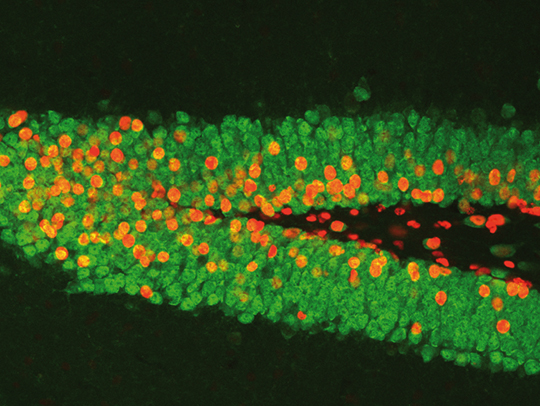The analysis of the biology of neurotropic viruses, notably of their interference with cellular signaling, provides a useful tool to get further insight into the role of specific pathways in the control of behavioral functions. Here, we exploited the natural property of a viral protein identified as a major effector of behavioral disorders during infection. We used the phosphoprotein (P) of Borna disease virus, which acts as a decoy substrate for protein kinase C (PKC) when expressed in neurons and disrupts synaptic plasticity. By a lentiviral-based strategy, we directed the singled-out expression of P in the dentate gyrus of the hippocampus and we examined its impact on mouse behavior. Mice expressing the P protein displayed increased anxiety and impaired long-term memory in contextual and spatial memory tasks. Interestingly, these effects were dependent on P protein phosphorylation by PKC, as expression of a mutant form of P devoid of its PKC phosphorylation sites had no effect on these behaviors. We also revealed features of behavioral impairment induced by P protein expression but that were independent of its phosphorylation by PKC. Altogether, our findings provide insight into the behavioral correlates of viral infection, as well as into the impact of virus-mediated alterations of the PKC pathway on behavioral functions.

